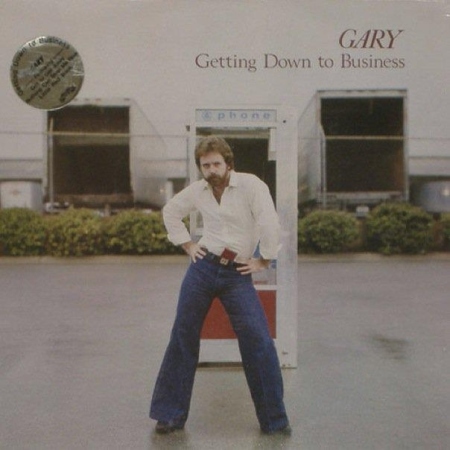This morning the Guardian greeted me with another piece on euthanasia: When it’s time to go, let me go with a nice glass of whisky and a pleasing pill. Drabble argues that, for the sake of of ‘compassion, dignity and common sense’ it’s time to change laws on assisted death and euthanasia. It would be compassionate because suffering is needless, common sense because aging and disability are expensive. But what about dignity?
I don’t want to get into a discussion on euthanasia itself. Honestly, I don’t feel I’m emotionally equipped to do it justice; I’ve never watched someone die.
Instead, I’m interested in dignity. Advocates of euthanasia broadcast their concern for dignity. Lobby groups, ‘Dying with Dignity’, ‘Dying in Dignity’, ‘Dignity in Dying’, promote the cause. Whether you’re for or against euthanasia, everyone believes in dignity. At the heart of the controversy over euthanasia, I would suggest, is a conflict over the meaning of human dignity. What is dignity, and why die with it?

There’s a lot of confusion around the concept of dignity. Is it innate? Is it contingent on one’s behaviour or ability? Perhaps it is conferred by others. If so, could I do something to take away your dignity? Or would treating you in an ‘undignified’ way merely mean failing to treat you according to the dignity you have?
Dignity: the state or quality of being worthy of honour or respect. OED.
Pro-euthanasia arguments sometimes suggest that:
- dignity is innate (dignity being the ground for human rights, including, it is claimed, the right to death)
- dignity is contingent on one’s abilities (thus dependence on others for basic needs could be seen as undignified)
- dignity is conferred by others (thus being treated without respect could mean loss of dignity)

Looking at Dying with Dignity NSW’s website, I can find no definition of dignity. Dignity in Dying (which Drabble supports) doesn’t define dignity itself, but outlines its vision for a ‘dignified death’:
We believe that everyone has the right to a dignified death. This means:
- Choice over where we die, who is present and our treatment options.
- Access to expert information on our options, good quality end-of-life care, and support for loved ones and carers.
- Control over how we die, our symptoms and pain relief, and planning our own death.
Choice, access and control. The basic value underpinning dignity for euthanasia organisations is autonomy. Autonomy means the ability to choose not to suffer, not to be dependent on others, not to grow weak.
Thus, the apparent confusion of wither dignity is innate, earned or conferred is no confusion at all. If autonomy is the source of dignity, all people have some degree of dignity, but this can be limited by their own lack of ability or the limitations others place on them.
(Interestingly pro-euthanasia groups limit their offer of the choice of euthanasia to ‘competent adults’, ‘those psychologically capable of doing so’ but not ‘vulnerable people’ such as people with mental illness. In my more cynical moments I wonder if this is actually perfectly consistent since, in an autonomy model of dignity, vulnerable people lack dignity already.)
But I would suggest there is a better way to understand dignity, fuller and richer than autonomy. After all, the autonomy model only gets us so far; no one can choose not to die, we all lose our autonomy eventually.
Dignity is about being who God made you to be.
Now the Bible doesn’t actually say much about dignity specifically. It does teach that humankind has dignity because of our relationship to God and his creation. God ‘crowned’ us with ‘glory and honour.’ He is the source of our dignity.
When I consider your heavens,
the work of your fingers,
the moon and the stars,
which you have set in place,
what is mankind that you are mindful of them,
human beings that you care for them?You have made them a little lower than the angels
and crowned them with glory and honour.
You made them rulers over the works of your hands;
you put everything under their feet…
Lord, our Lord, how majestic is your name in all the earth!
Since God has crowned us with dignity, it is fitting to behave according to this dignity. In line with Psalm 8, to live in dignity, I would say, is to live in the knowledge that though we are small, we are loved by God.The ‘Woman of Valour‘ of Proverbs 31 is ‘clothed with strength and dignity’ as she ‘fears the Lord.’ 1 Timothy 2 teaches us to ‘live a tranquil and quiet life in all godliness and dignity’. Titus is taught to ‘make yourself an example of good works with integrity and dignity in your teaching. Your message is to be sound beyond reproach, so that the opponent will be ashamed, having nothing bad to say about us.’ There is something about dignity will be obvious to those around. There is a quiet contentment to it. Perhaps the Ephesians 2 teaching that we are God’s workmanship or better, craftmanship, helps. Dignity is being who God made you, but also becoming the artwork God is making you.
Though there is little specifically on dignity in scripture, its teaching on ‘good death’ is plain.
It all comes down to whether Jesus’ death was a victory or a tragedy.
1 Peter 2
But when you do what is good and suffer, if you endure it, this brings favor with God. For you were called to this, because Christ also suffered for you, leaving you an example, so that you should follow in His steps. He did not commit sin, and no deceit was found in His mouth; when He was reviled, He did not revile in return; when He was suffering, He did not threaten but entrusted Himself to the One who judges justly.
Philippians 2
Make your own attitude that of Christ Jesus, who, existing in the form of God, did not consider equality with God as something to be used for His own advantage. Instead He emptied Himself by assuming the form of a slave, taking on the likeness of men. And when He had come as a man in His external form, He humbled Himself by becoming obedient to the point of death— even to death on a cross. For this reason God highly exalted Him and gave Him the name that is above every name…
 Jesus death was not only a good death, but the good death. More than that (or perhaps worse still?!), his death is a model for us.
Jesus death was not only a good death, but the good death. More than that (or perhaps worse still?!), his death is a model for us.
What made it good? It wasn’t simply that Jesus suffered. This isn’t sadism. An assumption of some pro-euthanasia advocates is that suffering is not only not good, but it is meaningless. Yet Jesus’ suffering was full of meaning. It was for us and it was an expression of obedience and trust in the knowledge of who God is (of course it means many other things which I can’t go into just now).
While an autonomy model of dignity leads to a vision of the ‘good death’ as one based on ‘choice, access and control’, the ‘good death’ of Jesus was exactly the opposite: one of submission, sacrifice and obedience. Yet, if anyone has died with dignity, it was Jesus. Though it appeared undignified to those who tried to humiliate him, his death was pleasing to God and full of dignity. So for those who believe Jesus died the good death, dignity in death cannot be about autonomy.
So what do you think of my foundation for dignity – being who God made you to be, becoming who God made you to become? Can you think of a better way to understand dignity?
Some final links – This piece from the Vatican on Respect for the Dignity of the Dying is worth considering, as is anything by Stella Young, including Disability – a fate worse than death? Finally, Maria Popova’s piece on Brainpickings about Michael Hecht’s book Stay: A Social History of Suicide is worth a read for another secular perspective.
 More ‘theologygrams’
More ‘theologygrams’  There is another passage about the purpose of marriage which often gets brought up in this debate. Malachi 2.
There is another passage about the purpose of marriage which often gets brought up in this debate. Malachi 2. The issue has been rebounding around the internet in the last few weeks after Time magazine published a piece on the
The issue has been rebounding around the internet in the last few weeks after Time magazine published a piece on the  I do want to affirm, however, that children are a blessing from God and that the Christian choice to have children in a broken and suffering world is an act of faith: God is redeeming the world! But the decision not to have children for the sake of the gospel can also be an act of faith, so I’m simply going to argue that we are free in regards to this decision.
I do want to affirm, however, that children are a blessing from God and that the Christian choice to have children in a broken and suffering world is an act of faith: God is redeeming the world! But the decision not to have children for the sake of the gospel can also be an act of faith, so I’m simply going to argue that we are free in regards to this decision.

